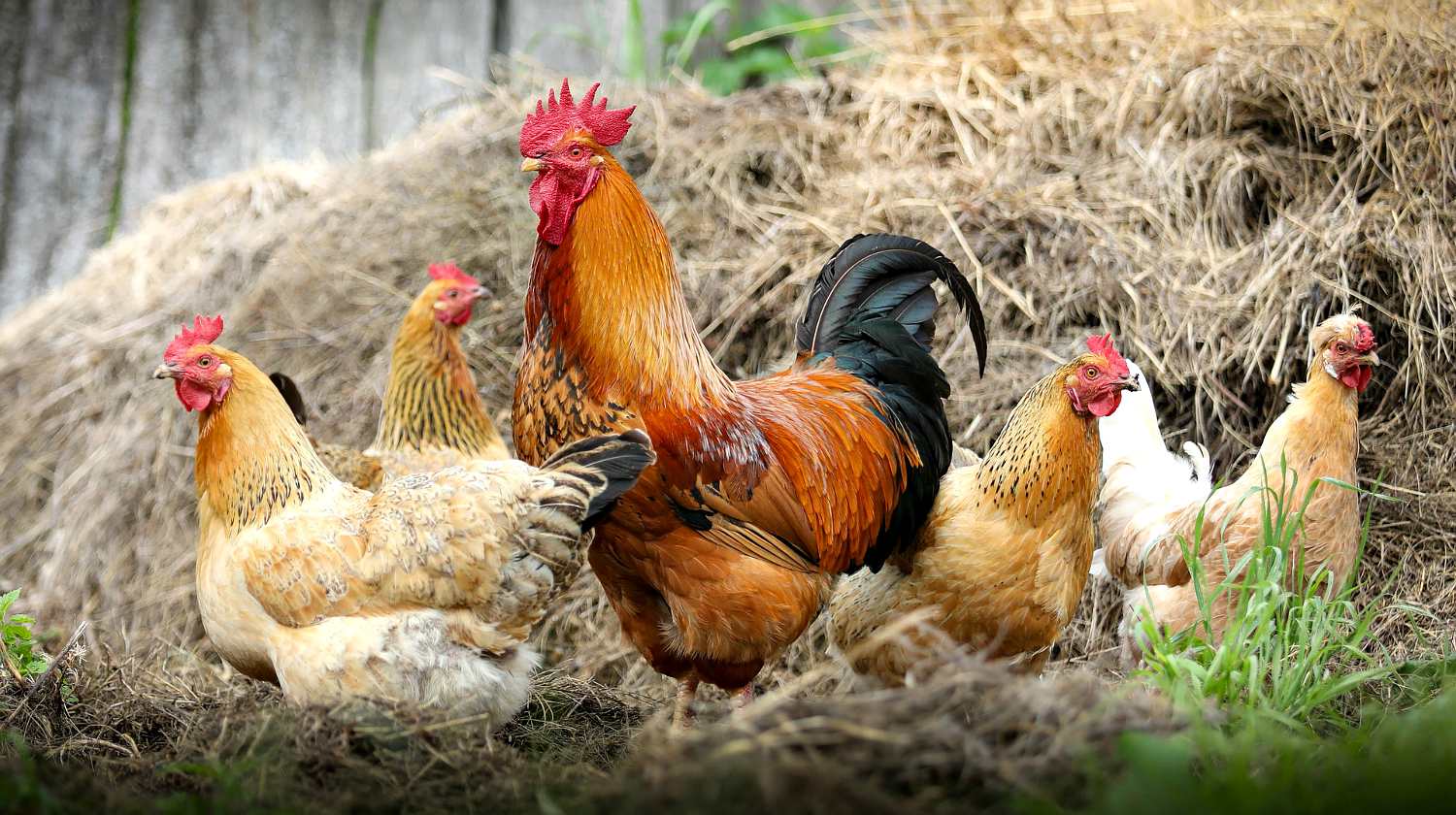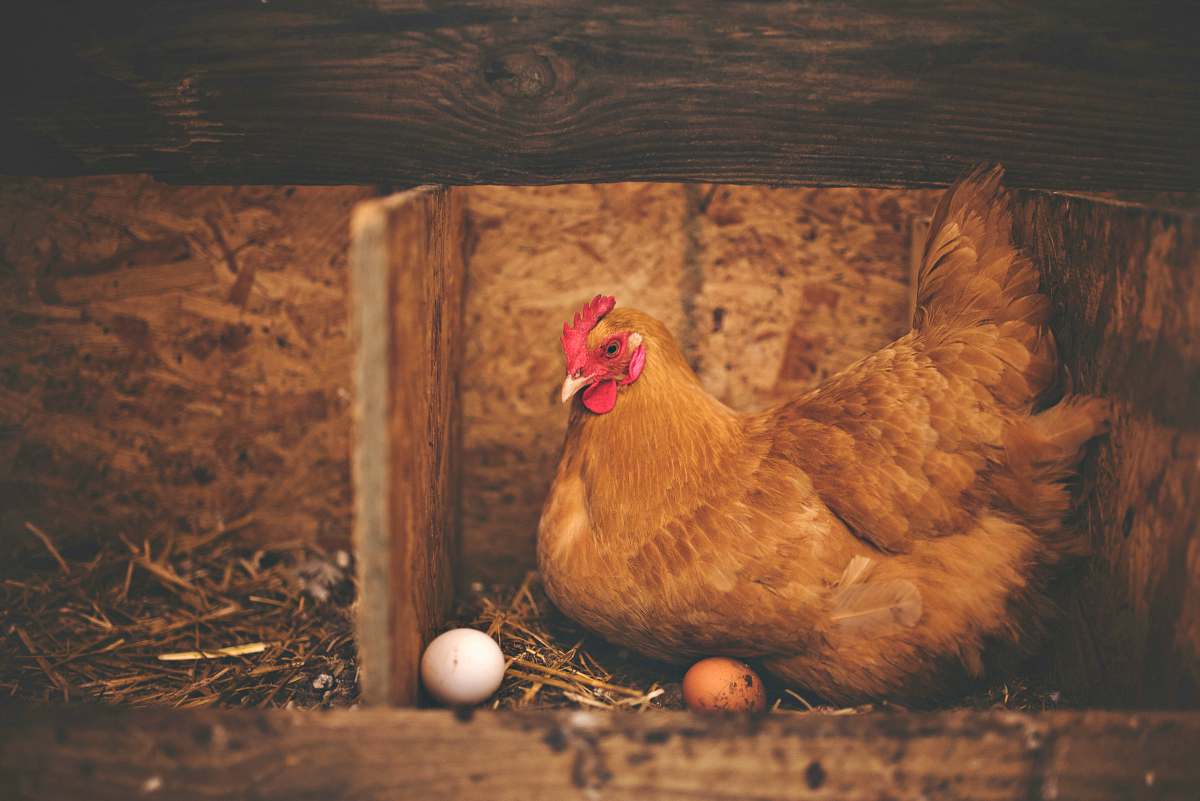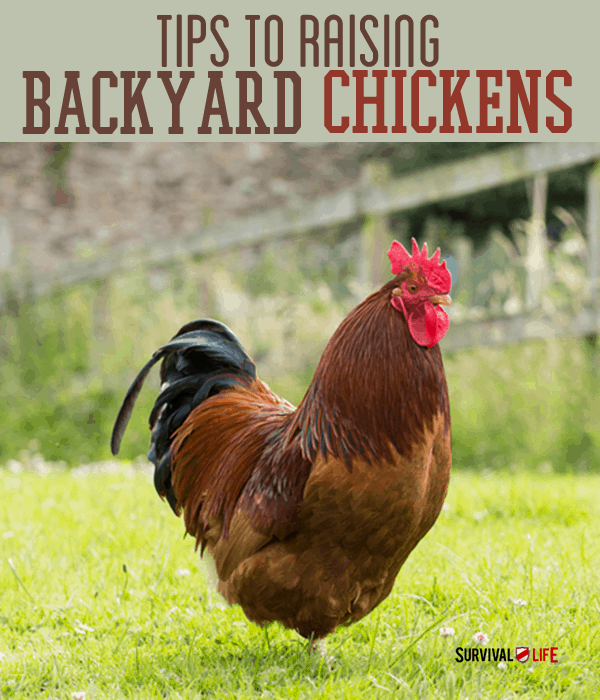Food Production
Hen Pecked: An In-Depth Interview On Raising Chickens

Learn from this interview with raising chickens expert, Gail Damerow, and get more smart insights for success in raising backyard chickens!
RELATED: How To Raise Barnyard Chickens
Practical Tips and Insights About Raising Chickens
Interview with Gail Damerow on Raising Chickens
I had the pleasure of interviewing Gail Damerow, an expert in breeding and raising chickens. Raising chickens has become very popular with city folk.
Some have dubbed the trend the “Urban Chicken Movement” — and so people are seeking information about how to raise chickens.
Raising chickens is part of a larger movement toward locally-sourced and seasonal food as more people become aware of the health risks involved in eating food treated with chemicals.
People are also more mindful of the ethical concerns involving battery-style factory poultry production and the thwarting of the animals’ natural needs for sunlight, space, and fresh air inherent in factory farming of chickens.
What Is Battery-Style Factory Poultry Production? It is a method in animal production specifically for raising chickens for eggs. It uses battery cages as the housing system.
Gail has written several books about breeding and raising chickens and also has some YouTube videos on the subject, so please don’t miss the links at the bottom of the page.
So, let’s get down to discussing chickens!
Why and How to Get Started with Raising Chickens
Sarah Stafford: Gail, thanks so much for talking with me today! To begin, why do you think that people are becoming more interested in raising chickens?
Gail Damerow: Partly nostalgia. Partly to have better control over their food supply (mostly eggs, but sometimes meat).
It's also partly for entertainment value — chickens are a hoot. Partly so they don’t get left behind by the current chicken craze.
SS: When starting to raise chickens, is it best to start with adult birds or with chicks?
GD: I advocate starting with chicks. For the most part, chicks are healthier than mature chickens, so you have less chance of bringing some disease into your yard you might later have trouble getting rid of.
Also, chicks are easier to train to be friendly. Chicks are a little more trouble at the start, but only for a few weeks until they can go outside on their own.
My book Hatching and Brooding Your Own Chicks has lots of tips for successfully raising chicks. Let this be your guide to raising chickens at home, especially if you're a beginner.
Problems You Will Encounter When Raising Chickens
SS: Do people encounter resistance from neighbors or government when they start raising chickens?
GD: That depends on where they live. Some areas have no restrictions and some limit the number of chickens you can have and where you can keep them.
Some ordinances ban chickens altogether, but many times new chicken keepers are able to overturn those draconian laws.
Neighbors can be problematic. Sometimes the worst ones are those who once had chickens themselves.
Some new chicken keepers find it advantageous to let the neighbors know their plans, ask if they have any concerns they can address, and even offer to share fresh eggs.
Depending on the neighbor’s temperament, this might quell any potential resistance.
SS: When I think about raising chickens, the first thing which comes to mind is being awakened at the crack of dawn by a rooster. What to do about the “rooster problem?”
GD: Don’t have a rooster is the best solution. Some areas that allow hens, ban roosters.
RELATED: Chicken And Duck Keeping | Top 10 Natural Remedies For Your Sick Flock
Raising Chickens for Eggs and Meat

SS: Do people who raise chickens usually breed them too, or do they just have hens for the eggs?
GD: People have different reasons for keeping chickens. A lot of people have only a couple of hens for eggs.
Some people are true breeders, in the sense of exercising genetic control. That’s important for conserving a minor or heritage breed.
Others breed indiscriminately for maximum numbers, like the notorious puppy mills. Sometimes it’s just fun to put a hen and rooster together and see what kind of chicks they produce.
A Day in the Life of Backyard Chickens
SS: Describe a day in the life of a backyard chicken. When do they get breakfast, what do they spend their day doing, things like that.
GD: Ours have feed and water available 24/7. We check their feeders and drinkers every morning and usually bring them a treat, which might be surplus goat milk or produce from our garden.
The hens are usually busy laying during the first half of the day (they don’t lay late in the day or at night). Otherwise, they spend a lot of time pecking and scratching in the yard.
We can’t see our chicken yard from the house, so sometimes we put a motion-sensitive camera in the yard and found out the whole flock goes indoors for an afternoon siesta.
Then more pecking and scratching. When darkness starts to fall they go inside to roost for the night. They stay on their perch until sunup the next morning.
Chicken Feed
SS: What do you feed your chickens? Does this vary according to season?
GD: We feed them a layer ration available 24/7 in a hanging feeder. They also get an oyster shell in a separate hopper so they can take what they need to keep their eggshells strong.
Otherwise, they forage in the pasture and orchard, eating weeds, bugs, windfall fruit, and whatever else they find.
Seasonally they get treats like ripe tomatoes, cucumbers, pumpkins, melons, mashed potatoes, goat milk yogurt — depending on what’s available at the time.
Watch below as Gail gives a tour of her custom-built hatching and brooding area. She has some clever tips to help you avoid some common pitfalls when raising chicks.
Chicken Breeds
SS: Are there some breeds of chicken you prefer, for example, because of their sociability, egg color, or other reasons?
GD: I’m partial to hens which lay brown-shell eggs, but I have had hens laying eggs with blue, green, or white shells. The eggs all taste the same.
Some folks like to mix and match; all those different shell colors look awesomely mixed in an egg carton. As a completely non-practical breed, I’m partial to my Silkie bantams.
They are so friendly and comical — they never fail to make me laugh. They lay tiny white eggs that are great for hard cooking, pickling, and making omelets.
The eggs are richer because they have proportionally more yolk to white than eggs laid by our larger hens. But they’re so small, it takes a lot of them to do anything.
SS: Are there some breeds better in a backyard setting than others?
GD: Lots of breeds do well in backyards, but some are just not suitable because they are too nervous and excitable or too aggressive.
Once you pick out a breed you like, a little research will tell you if it is likely to have unpleasant characteristics. My book The Chicken Encyclopedia includes a capsule description of each breed.
To Wrap It Up
SS: What advice would you give to a person who is considering raising chickens?
GD: First check your local ordinances to make sure your chickens and their housing are within legal limits. Then arrange your facilities.
Include putting up a good strong fence to protect your chickens from predators and to keep them from wandering around the neighborhood.
The rest of it is learning by doing, by visiting local chicken keepers, and by reading authoritative sources.
SS: Gail, thank you so much for taking the time to talk with me about chickens! I’m excited to share this with my readers!
GD: Anytime!
Obviously, Gail has much more wisdom about raising chickens other than what's shared in a brief blog article. She has an extensive list of publications to tell you everything you could possibly want to know about raising chickens.
Click here to see a list of Gail’s books on raising chickens.
There are others available at Amazon.com as well.
This video from Justin Rhodes will give you some tips for raising chickens in cold winter:
While the latest interest in raising chickens is borne of taste and health reasons, self-sufficient survivalists should be frontrunners in this area. Raising your own food is one of the most important survival and self-sufficiency skills, after all.
Raising chickens isn't a walk in the park, but take your lessons from the experts for your money and effort's worth!
Tried raising chickens before? Or, are you raising some in your backyard now? Tell us all about it in the comments section below!
Up Next:
- Bang For Your Cluck – Raising Backyard Chickens
- 9 Tips For Raising Healthy Pigs
- 16 Tips For Raising Goats
If you’re looking for useful survival gear you can’t make at home, check out the Survival Life Store!
Follow us on Facebook, Instagram, Twitter, and Pinterest!
***Disclaimer: The contents of this article are for informational purposes only. Please read our full disclaimer.***
Editor’s Note: This post was originally published on September 16, 2013, and has been updated for quality and relevancy.
-

 Do It Yourself7 months ago
Do It Yourself7 months agoParacord Projects | 36 Cool Paracord Ideas For Your Paracord Survival Projects
-

 Do It Yourself10 months ago
Do It Yourself10 months agoHow To Make Paracord Survival Bracelets | DIY Survival Prepping
-

 Do It Yourself9 months ago
Do It Yourself9 months ago21 Home Remedies For Toothache Pain Relief
-

 Do It Yourself10 months ago
Do It Yourself10 months agoSurvival DIY: How To Melt Aluminum Cans For Casting
-

 Exports8 months ago
Exports8 months agoAre Switchblades Legal? Knife Laws By State




Tessa
October 8, 2013 at 2:10 PM
I keep hens for bug control! I am a backyard beekeeper and I do not use pesticides. My free range hens run amuck all day looking for bugs. I had a ton of lawn bugs (5K sq. ft.) and in the 4 months I have had them, they have visibly cut down that population! I do clip their wings but that does not slow them down. NO ONE is allowed to chase my ladies so they come when I call them and are more like pets. The cats love them but are a little wary of their beaks.
I’m thinking of loaning out my hens to neighbors that are willing to stop using pesticides.
Pingback: Hen Pecked: An In Depth Interview On Raising Chickens -
Pingback: Raising Backyard Chickens | Survival Life - Survival Life | Preppers | Survival Gear | Blog
Pingback: Bang For Your Cluck - Raising Backyard Chickens | Pioneer Settler | Homesteading | Self Reliance | Recipes
Pingback: Advantages of Going into Chicken Farming | Survival Life
Pingback: Survivalism Meets Homesteading: The To-Do List | Survival Life
Pingback: Survivalism Meets Homesteading: Essentials For Every Homesteader
Pingback: Top 10 Natural Remedies for Chicken and Duck Keeping
Pingback: Top 10 Natural Remedies for Chicken and Duck Keeping | survivalisthandbook.com
Pingback: How To Get Rid of Raccoons [Infographic] - Cooking in Quarantine
Pingback: How To Get Rid of Raccoons [Infographic] – Sprent Brass